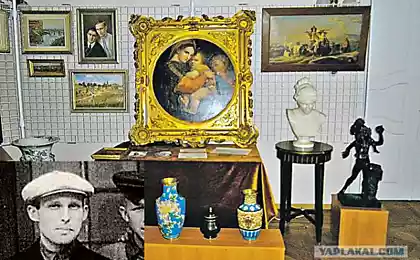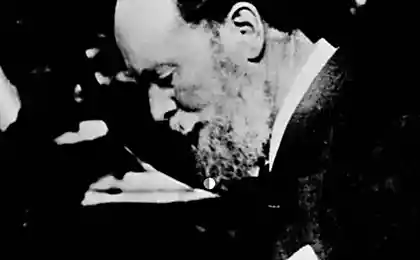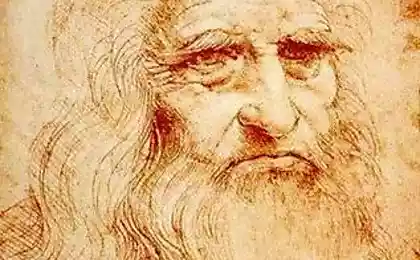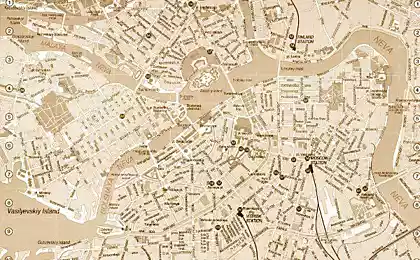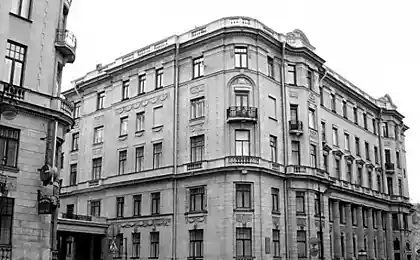151
How a simple electrician from Kirovograd arranged an underground Hermitage at home
In 1993, in the provincial Kirovograd quietly died a man whose life is worthy of being sung by Alexander Dumas or embodied in a Hollywood blockbuster. Alexander Ilyin was a retired electrician. And the secret treasure he collected became the largest private collection of antiques in Europe and by some estimates is estimated at $ 40 billion!
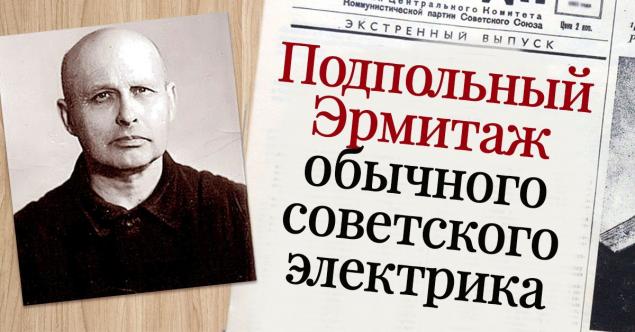
This incredible story began decades ago. Alexander Ilyin was born in 1920 in Rybinsk. The mother of the future collector Natalia Rimskaya-Korsakova was a noblewoman. The woman married a simple worker Boris Ilyin.
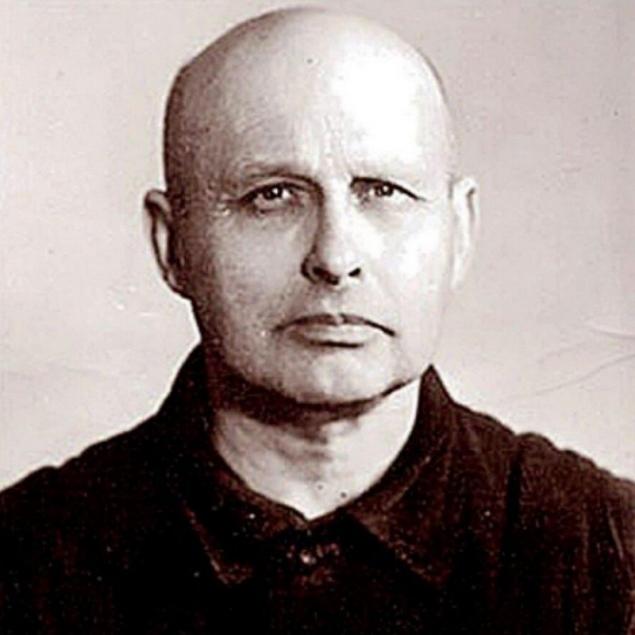
In the family of Natalia was a lot of antiquities, after some family values she was able to keep, despite the revolution. Her husband Rimskaya-Korsakova was first a turner, and by the 1930s he had grown to chief engineer.
The head of the family helped his wife to replenish the collection. This was facilitated by his working travels around the country. Alexander Ilyin grew up surrounded by valuable relics.
Data about the early period of life of Alexander Borisovich in the press is extremely small. It is known that in 1941 he entered the Moscow Peat Institute. And when Germany attacked, he somehow managed to get a white ticket. He reportedly paid for it with a rare book.
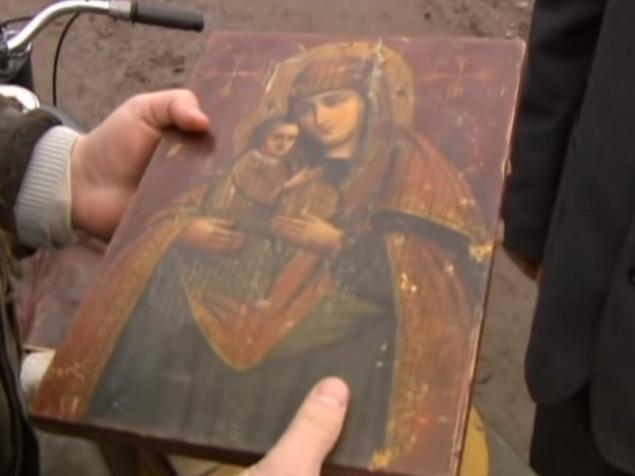
There is a version that in the postwar years Ilyin traveled around the USSR in search of people who have preserved ancient books or other artifacts. In 1946, he allegedly came to the Pochaev Lavra, where monks suffering from hunger and cold gave him many old books in exchange for a truck of firewood.
But the collector’s interest in religion is not limited to this case. In the same year he got a job as a restorer in the Kiev-Pechersk Lavra, where priests from time to time paid him with church books and utensils.
After the Lavra, the underground millionaire moved to his parents in Kirovograd and got a job as an electrician in a trust of city canteens. His profession allowed him to enter houses under the pretext of checking meters. If he found antiques from the owners, he offered to buy them.
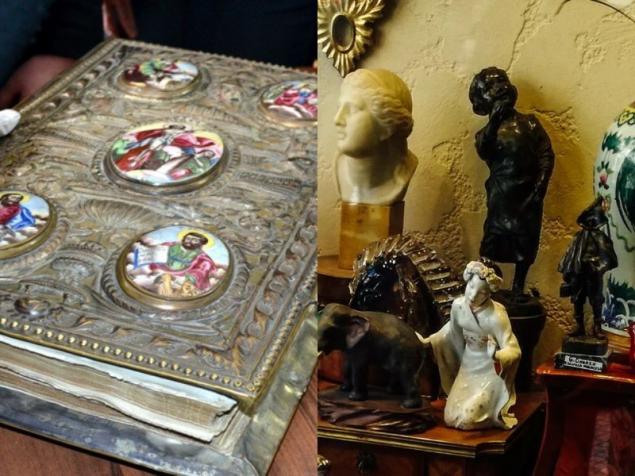
According to the memories of friends, all subsequent years the man lived extremely ascetic. Went in curl boots and the same worn out dress. And he slept on a chest, which, as it turned out, contained Pushkin’s mold-covered manuscripts and the first edition of Dead Souls.
Alexander Ilyin passed away on October 22, 1993. No will was found. On the last journey, the man was accompanied only by nephews and a few neighbors. “He lived in poverty and died hungry,” sighed the compassionate old women.
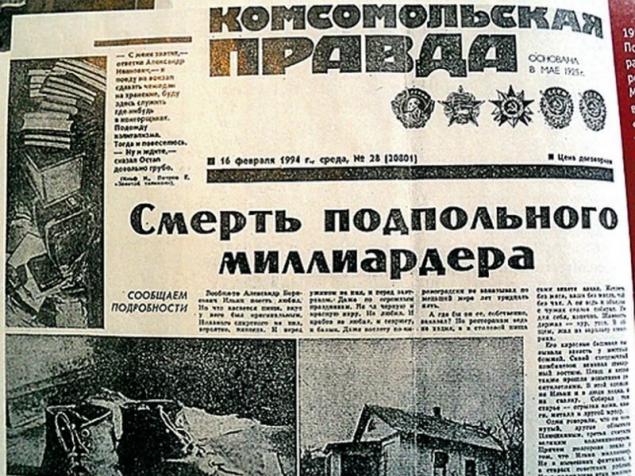
A few weeks after the death of Alexander Borisovich, a rare edition of Kobzar from his collection was found in one of the bookstores. Identified the book by pencil marks in the margins.
This fact proved that the collector’s item went on sale before the expiration of the legal period. Local residents, who knew about the collection, but did not represent its true scale, addressed a letter to the representative of the President of Ukraine. The court decision and the arrest of the collection followed.
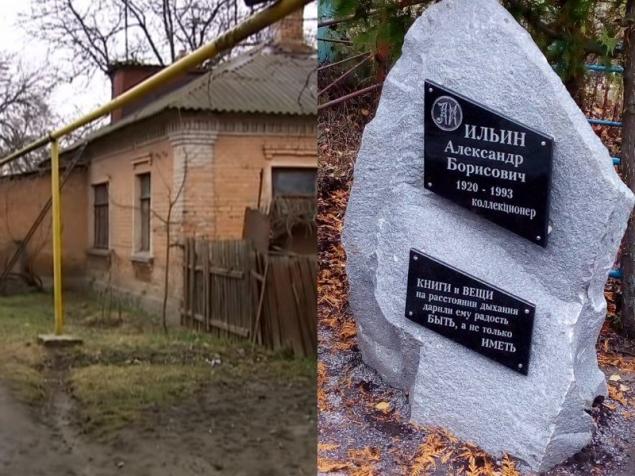
What was the surprise of the experts who found in the house with a leaky roof thousands of ancient books, icons, gold and silver products, manuscripts. The book "Byzantine enamel" alone is estimated at about one hundred thousand dollars, and the four-volume "The Royal Hunt" is about two hundred thousand.
According to the recollections of the commission, the house was dirty, and unique exhibits lay as they should, covered with dust. The director of the local history museum recalls that “it took either fifteen or twenty trucks to take out the entire collection.”
However, it is not certain that all valuables have been removed. Since the nephews lived in the house with Ilyin, only things that they themselves identified as belonging to the uncle were seized. In addition, it is rumored that some uninvited guests managed to visit the old man’s house before the police.
In any case, the museum did not even find such a large room where it would be possible to work with a huge amount of received values. The inventory and restoration of the collection lasted several years. During this time, many employees who worked in the commission suffered serious illnesses. There were rumors about the curse of the collection.
"Dragon Syndrome" and unsolved secrets of Alexander Ilyin Almost 20 years have passed since the death of Ilyin. But the secret of his treasures still haunts our minds. Could a simple electrician for a salary of 100 rubles collect rarities for billions of dollars? Why didn't he leave a will and an inventory of the collection?
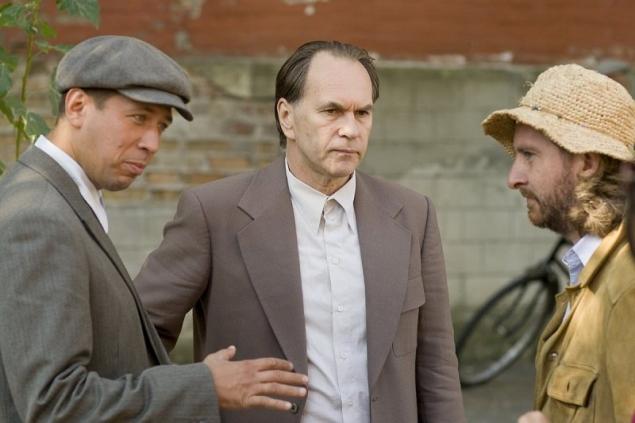
In 2012, the series “Dragon Syndrome” was released dedicated to the mysterious history of the series directed by Nikolai Khomerica. The writers offered their version of events. According to her, the profession of an electrician is only a cover legend from the KGB, and Ilyin is the keeper of secret wealth collected by the party elite during and after the war.
Today, the secret treasure of Ilyin is still surrounded by many rumors, the authenticity of which can neither be verified nor unequivocally denied. And, most likely, to reveal the truth is unlikely to succeed.

This incredible story began decades ago. Alexander Ilyin was born in 1920 in Rybinsk. The mother of the future collector Natalia Rimskaya-Korsakova was a noblewoman. The woman married a simple worker Boris Ilyin.

In the family of Natalia was a lot of antiquities, after some family values she was able to keep, despite the revolution. Her husband Rimskaya-Korsakova was first a turner, and by the 1930s he had grown to chief engineer.
The head of the family helped his wife to replenish the collection. This was facilitated by his working travels around the country. Alexander Ilyin grew up surrounded by valuable relics.
Data about the early period of life of Alexander Borisovich in the press is extremely small. It is known that in 1941 he entered the Moscow Peat Institute. And when Germany attacked, he somehow managed to get a white ticket. He reportedly paid for it with a rare book.

There is a version that in the postwar years Ilyin traveled around the USSR in search of people who have preserved ancient books or other artifacts. In 1946, he allegedly came to the Pochaev Lavra, where monks suffering from hunger and cold gave him many old books in exchange for a truck of firewood.
But the collector’s interest in religion is not limited to this case. In the same year he got a job as a restorer in the Kiev-Pechersk Lavra, where priests from time to time paid him with church books and utensils.
After the Lavra, the underground millionaire moved to his parents in Kirovograd and got a job as an electrician in a trust of city canteens. His profession allowed him to enter houses under the pretext of checking meters. If he found antiques from the owners, he offered to buy them.

According to the memories of friends, all subsequent years the man lived extremely ascetic. Went in curl boots and the same worn out dress. And he slept on a chest, which, as it turned out, contained Pushkin’s mold-covered manuscripts and the first edition of Dead Souls.
Alexander Ilyin passed away on October 22, 1993. No will was found. On the last journey, the man was accompanied only by nephews and a few neighbors. “He lived in poverty and died hungry,” sighed the compassionate old women.

A few weeks after the death of Alexander Borisovich, a rare edition of Kobzar from his collection was found in one of the bookstores. Identified the book by pencil marks in the margins.
This fact proved that the collector’s item went on sale before the expiration of the legal period. Local residents, who knew about the collection, but did not represent its true scale, addressed a letter to the representative of the President of Ukraine. The court decision and the arrest of the collection followed.

What was the surprise of the experts who found in the house with a leaky roof thousands of ancient books, icons, gold and silver products, manuscripts. The book "Byzantine enamel" alone is estimated at about one hundred thousand dollars, and the four-volume "The Royal Hunt" is about two hundred thousand.
According to the recollections of the commission, the house was dirty, and unique exhibits lay as they should, covered with dust. The director of the local history museum recalls that “it took either fifteen or twenty trucks to take out the entire collection.”
However, it is not certain that all valuables have been removed. Since the nephews lived in the house with Ilyin, only things that they themselves identified as belonging to the uncle were seized. In addition, it is rumored that some uninvited guests managed to visit the old man’s house before the police.
In any case, the museum did not even find such a large room where it would be possible to work with a huge amount of received values. The inventory and restoration of the collection lasted several years. During this time, many employees who worked in the commission suffered serious illnesses. There were rumors about the curse of the collection.
"Dragon Syndrome" and unsolved secrets of Alexander Ilyin Almost 20 years have passed since the death of Ilyin. But the secret of his treasures still haunts our minds. Could a simple electrician for a salary of 100 rubles collect rarities for billions of dollars? Why didn't he leave a will and an inventory of the collection?

In 2012, the series “Dragon Syndrome” was released dedicated to the mysterious history of the series directed by Nikolai Khomerica. The writers offered their version of events. According to her, the profession of an electrician is only a cover legend from the KGB, and Ilyin is the keeper of secret wealth collected by the party elite during and after the war.
Today, the secret treasure of Ilyin is still surrounded by many rumors, the authenticity of which can neither be verified nor unequivocally denied. And, most likely, to reveal the truth is unlikely to succeed.
The chef explained how Arkhangelsk borscht is better than Ukrainian and how to cook a large pan at once
I wonder why women age so quickly with old partners.



